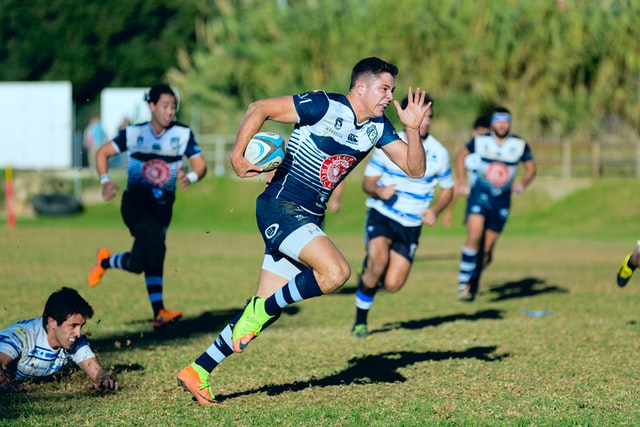We hope that our leadership podcast has, and continues to, inspire upcoming leaders that are hungry to succeed.
As The Leadership Detectives, we uncover clues to reliably effective and truly inspirational leadership.
In this episode, we were delighted to be joined by ex-Northampton Saints & British Lions England A rugby professional and successful entrepreneur: Harvey Thorneycroft.
Our wide-ranging discussion on leadership drew inspiration from success stories like Sir Ian McGeechan and Martin Johnson.
Are there great leadership clues that can be found in sports?
Harvey Thorneycroft takes us through his experiences under a prolific leader in the rugby universe, and how he uses a similar “commitment plan” strategy to achieve his own personal and business goals.
Powerful leaders use purpose to drive team vision
When asked who his most inspirational leader was in his career, Harvey names Sir Ian McGeechan.
McGeechan coached Harvey during his 13 years with Northampton Saints rugby club (1987 – 2001).
What made him great as a coach was his ability to foster purpose within the team, and he develop detailed strategies for success that worked.
He knew his strengths and weaknesses, and implemented commitment plants that the entire team and staff bought into.
McGeechan started coaching the Northampton Saints when the club had just been relegated to the Second Division – and went on to coach the Scottish national rugby team.
Importance of understanding it’s a stretched target
Sir Ian McGeechan had the ability to motivate everyone he led, maintaining the attitude that success is the culmination of 100 things done better by 1% each.
Success is a moving target, not a fixed point of singular achievement.
McGeechan would put the strategy in place and commit to it completely, using data to evolve teams into the best versions of themselves.
An example of implementing a commitment plan Harvey shared was Great Britain Hockey’s 2016 Olympics victory over competition favourites – The Netherlands.
The team used psychometric assessments to ascertain each individual’s strengths and weaknesses.
Team Great Britain’s commitment to the commitment plan led to an upset victory, and one that will be remembered in sports for years to come.
Risk-taking can end in ruin, but also in glory
Harvey shares that another inspirational leader he rubbed shoulders with was iconic England rugby legend, Martin Johnson.
Johnson was able to do something very few leaders can: balance their professional and home lives effectively.
He would put his plan in place, then pursue its execution to the best of his ability.
Success certainly is planned, but Johnson was a leader that also understood the power of risk-taking.
Risks can end in ruin, as most of us know well, but they can also lead to glory when they pay off.
Knowing when to commit to a risk is something the best leaders understand.
Leaders who stop leading need a purpose
Harvey’s tenure with the Northampton Saints may have ended in 2001, but he certainly hasn’t been taking his retirement from sport slowly.
In fact, Harvey has built up a business that has access to some of the biggest names in any industry.
Some of a leader’s biggest achievements can come after their time leading a team.
Instead of falling into a depression like so many leaders do once they’re not in those roles, leaders should set other goals in different areas of interest.
Reinventing yourself after your time in the spotlight is possible, and leaders should never let people make you feel limited.
4 traits of effective leaders
Harvey’s project, Brilliant Minds, was founded in 2003.
He made it his goal to seek out the best leaders in their respective fields – to learn from them, and share these insights with others.
His organisation filmed over 1,200 clips of over 200 brilliant leaders, and while the data yielded no iron-clad playbook for leadership success – it did offer four common traits that most of the interviewees shared:
- They showed wonderful charisma, and a profound sense of humility.
- They know their strengths but aren’t afraid to bring in help when needed.
- They understand that effective leadership is collaborative leadership.
- They prioritise their health and well-being alongside work commitments.
Final message from Harvey
Harvey left us with his advice for up-and-coming leaders currently proving themselves in the competitive business world.
He shares that the pandemic has proven to people the importance of appreciating the small things in life.
For leaders, it’s also about appreciating your teams and the little things they do that contributes to ultimate success.
—
Found this article inspiring?
We are always keen to chat with anyone about how they can improve their leadership skills, so to get in touch, feel free to reach out to us on neil@xnrg.co.uk or albert.joseph@excelleration.co.uk.
Alternatively, find out more about how The Leadership Detectives could help you by booking a free coaching session with us via our website.






